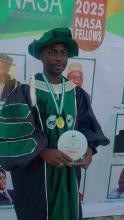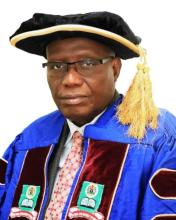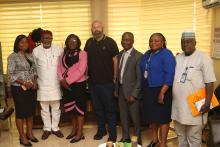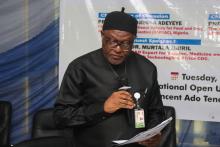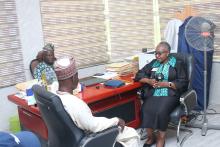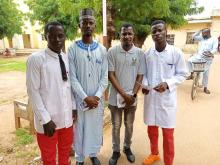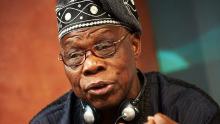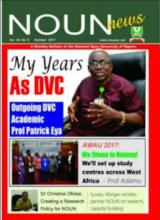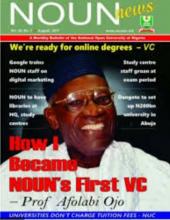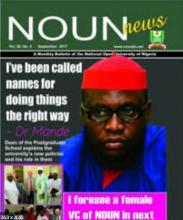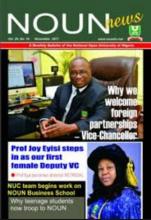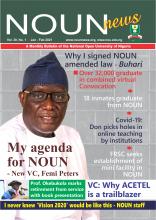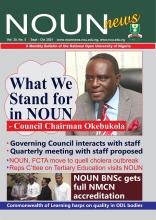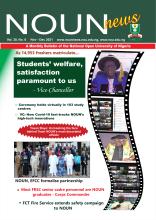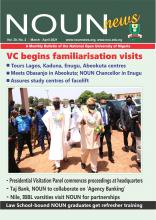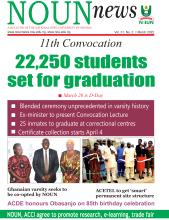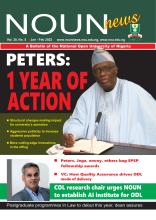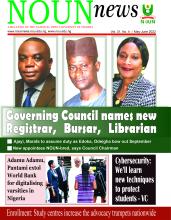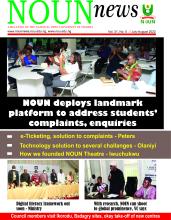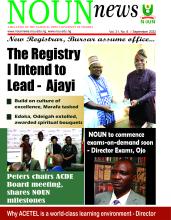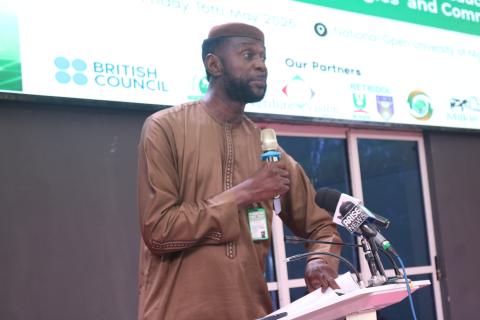
The Federal government has reasserted its commitment to strengthening Open and Distance Learning (ODL) in Nigeria through execution of relevant policies aimed at enhancing education delivery across the country.
The Minister of Education, Dr. Maruf Tunji Alausa, stated this while declaring open the 3rd International Conference of the Open Distance and eLearning Association of Nigeria (ODeLAN), held at the National Open University of Nigeria (NOUN) headquarters in Abuja.
The minister, represented by the deputy director of university education at the Federal Ministry of Education, Kareem Olawale, described the conference theme as timely and essential to repositioning ODL to expand access to quality education.
According to the him, the 3rd ODeLAN conference with the theme: “Adaptive Pedagogies for the Future of Education: Connecting Learners, Technologists, and Communities,” could not be more timely than this.
“In an age defined by rapid technological innovation,” the minister said, “ shifting learner demographics and global perspectives in need for an education system with diversity, inclusiveness, and future-ready has never been. Today, we gather to share our views.
“This conference provides an opportunity to take those lessons further, moving from emergency remote teaching to sustainable, attractive, and inclusive educational knowledge. As a government, we remain committed to strengthening open and distance learning in our national policy framework.”
Alausa added that government has recognised “this potential to extend access to quality education, especially in underserved communities, and to support lifelong e-learning.
“I commend ODeLAN for its continued efforts in building a community of practice that supports innovation, research, and collaboration in the e-learning space.”
In his welcome address, titled ODeLAN : Where Next? What Next? NOUN Vice-Chancellor, Prof. Olufemi Peters, extolled ODeLAN’s impact, describing the association as a success story in the field of distance learning.
Prof. Peters
“ODeLAN has been a success story thus far. Within five years of establishment, it has already organised 3 conferences and has seen its membership grow to over 500 individuals and about 21 institutional members. This year, it has even been able to attract international participants.
“From my biased view, I must say that the success of ODeLAN has been due largely to the dedication and steering capability of the President, Professor Francis Egbokhare, FAL and one-time Director of the Distance Learning Institute, University of Ibadan, under the VCship of Professor Olufemi Bamiro and members of his board,” the VC said.
Peters, while expressing the readiness of the university to support to achieve its full potentials, he reiterated that the NOUN will furnish the organisation’s secretariat when established.
In his address, ODeLAN president, Prof. Francis Egbokhare, highlighted the association’s mission to promote research-driven policies and practices tailored to Nigeria’s unique educational landscape.
Prof. Francis Egbokhare, ODeLAN President
“ODeLAN seeks to become an effective forum for collaboration by researchers, teachers, practitioners, policy makers and institutions.
“To date, we have over 500 individual and institutional members drawn from across Nigeria. At the last conference, we opened up membership to policy makers, teachers at the basic level, private sector practitioners and all interested persons who share our vision,” he added.
Egbokhare, however, raised concerns about systemic challenges affecting distance learning in the country, particularly regarding discriminatory policies.
“The denial of ODL students access to government subsidy on tuition and student loans undermines their rights as citizens. This is a grave injustice on Nigerians whose only crime is the mode of learning that they chose or which circumstances has foisted on them.
A Cross-Section of participants
“There is a great injustice facing ODL students. Challenges of parity of esteem and arbitrarily limiting the programme options available to distance learners is the norm.
“One still wonders why professional organisations insist that certain courses should not be run through the ODL mode whereas many of these persons take diverse professional development training through the same mode,’’ he stated.
- Log in to post comments
- 211 views

